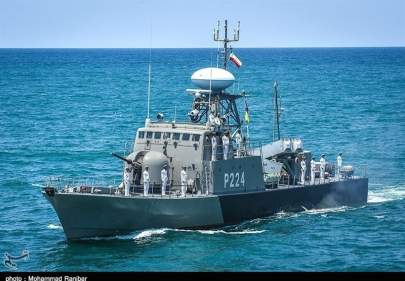Iran Tried to Persuade Sudan to Allow Naval Base on Its Red Sea Coast
Tuesday, March 5, 2024
Original Source: Wall Street Journal
By Nicholas Bariyo and Benoit Faucon
Updated March 3, 2024 12:25 am ET
Tehran, which has supplied drones for Khartoum’s war with a rebel warlord, pledged a warship in exchange for access but was turned down.

Iran unsuccessfully pressed Sudan to let it build a permanent naval base on the African country’s Red Sea coast, something that would have allowed Tehran to monitor maritime traffic to and from the Suez Canal and Israel, according to a senior Sudanese intelligence official.
Iran has supplied Sudan’s military with explosive drones to use in its fight with a rebel warlord and offered to provide a helicopter-carrying warship if Sudan had granted permission for the base, said Ahmad Hasan Mohamed, an intelligence adviser to Sudan’s military leader.
“The Iranians said they wanted to use the base for intelligence gathering,” Mohamed said in an interview. “They also wanted to station warships there.” He said Khartoum turned down Iran’s proposal to avoid alienating the U.S. and Israel.
A spokesman for Iran’s mission to the United Nations in New York declined to comment.
A naval base on the Red Sea would allow Tehran to tighten its grip on one of the world’s busiest shipping lanes, where it is helping Yemen-based Houthi rebels launch attacks on commercial vessels. Iran and the Houthis say the attacks are aimed at punishing Israel and its allies for the fighting in Gaza. Iran’s regional rivals, Israel, Egypt and Saudi Arabia, all have direct access to the waterway.
Iran has also been sending increasingly sophisticated weapons to its Houthi allies in Yemen, enhancing their ability to attack merchant vessels and disrupt international commerce despite weeks of U.S.-led airstrikes. A U.S.-led multinational force has also been deployed to protect seaborne traffic.
Sudan had close ties with Iran and its Palestinian ally Hamas under longtime strongman Omar al-Bashir. After Bashir’s ouster in a 2019 coup, the leader of the country’s military junta, Gen. Abdel Fattah al-Burhan, initiated a rapprochement with the U.S. in an effort to end international sanctions. He also moved to normalize relations with Israel.
Iran’s request to build a base highlights how regional powers are seeking to take advantage of Sudan’s 10-month-old civil war to gain a foothold in the country, a strategic crossroads between the Middle East and sub-Saharan Africa with a 400-mile Red Sea coastline.
Sudan’s military has been fighting the paramilitary Rapid Support Forces, led by Burhan’s former second-in-command, Lt. Gen. Mohamed Hamdan Dagalo, since mid-April. The conflict has killed tens of thousands of people, displaced millions and triggered one of the world’s worst humanitarian crises.
“Sudan bought drones from Iran because we needed more accurate weapons, to reduce the loss of human life and respect the international humanitarian law,” Mohamed said.
The explosive drones have helped Burhan reverse losses against the RSF, according to regional officials and analysts following the fighting. In recent weeks, the government has regained control of important areas of Khartoum and Omdurman, its twin city across the Nile.
The Biden administration has accused both the Sudanese military and the RSF of committing war crimes. The U.S. alleges the RSF also has committed crimes against humanity, including murder, rape and ethnic cleansing in the Darfur region in western Sudan.
U.N. officials have criticized Sudan for aerial bombing of civilian neighborhoods and depriving Sudanese civilians of desperately needed humanitarian aid. U.N. agencies have also accused the RSF of atrocities, including ethnically motivated attacks in Darfur.
Sudan’s military and the RSF have denied the U.S. and U.N. accusations.
In February, the U.S. voiced concern over Iranian arms shipments to the Sudanese army. John Godfrey, the U.S. ambassador to Sudan at the time, said reports of Iranian aid to Khartoum are “very troubling and a source of great concern for us.”
On Monday, the State Department appointed Tom Perriello, a former congressman, as the U.S. special envoy for Sudan.
The Wall Street Journal reported in October that Egypt has supplied drones to the Sudanese military and trained Sudanese troops in how to use them. The United Arab Emirates, meanwhile, has been sending weapons to the RSF, the Journal reported in August. An unpublished report by U.N. investigators that has been reviewed by the Journal also detailed U.A.E. weapons shipments.
The U.A.E. has denied making any such deliveries. Egyptian officials have said the country isn’t taking sides in the conflict and is working to end it.
Dubai is the biggest importer of Sudanese gold and in 2022 a U.A.E.-based consortium signed a $6 billion deal to build a new port facility on Sudan’s Red Sea coast.











